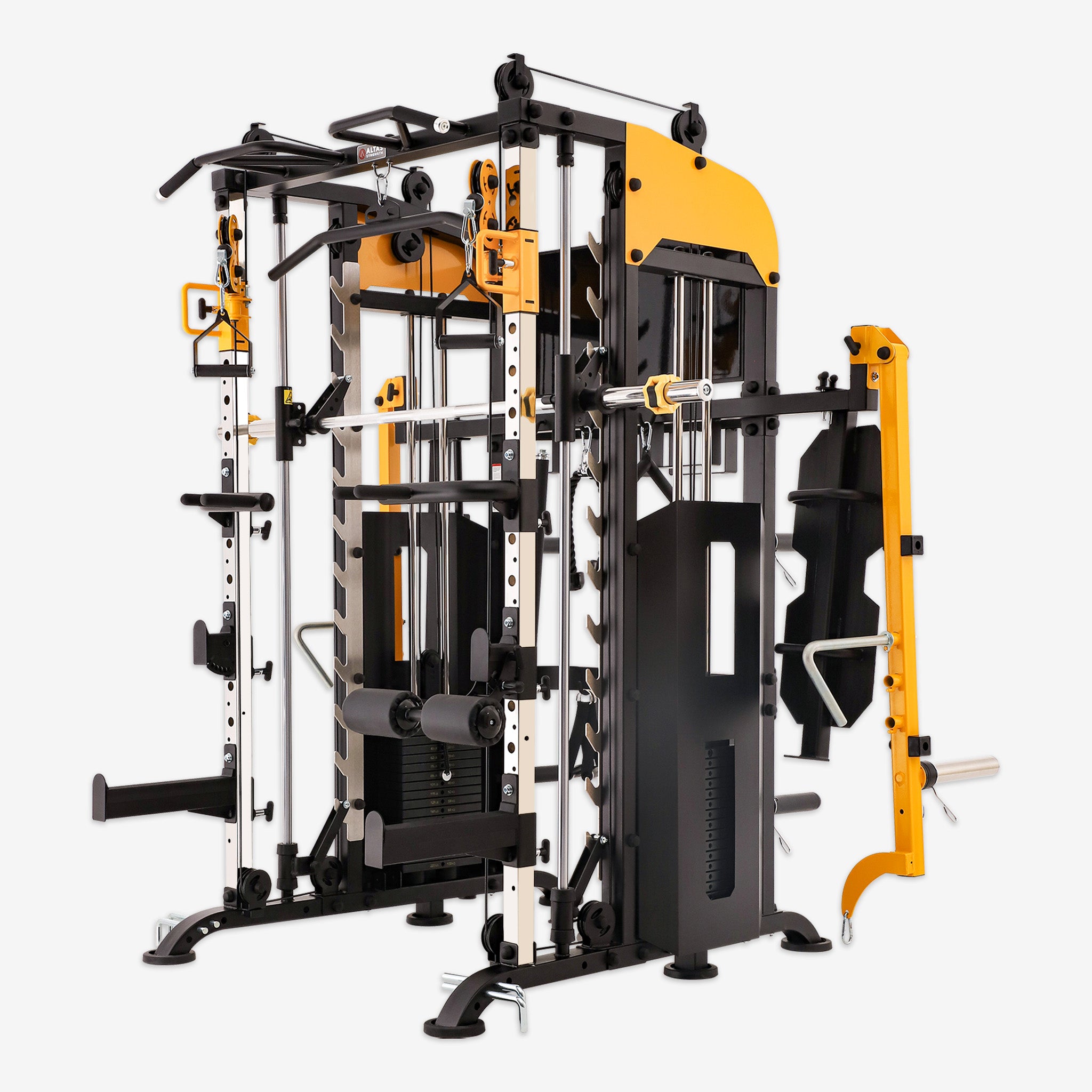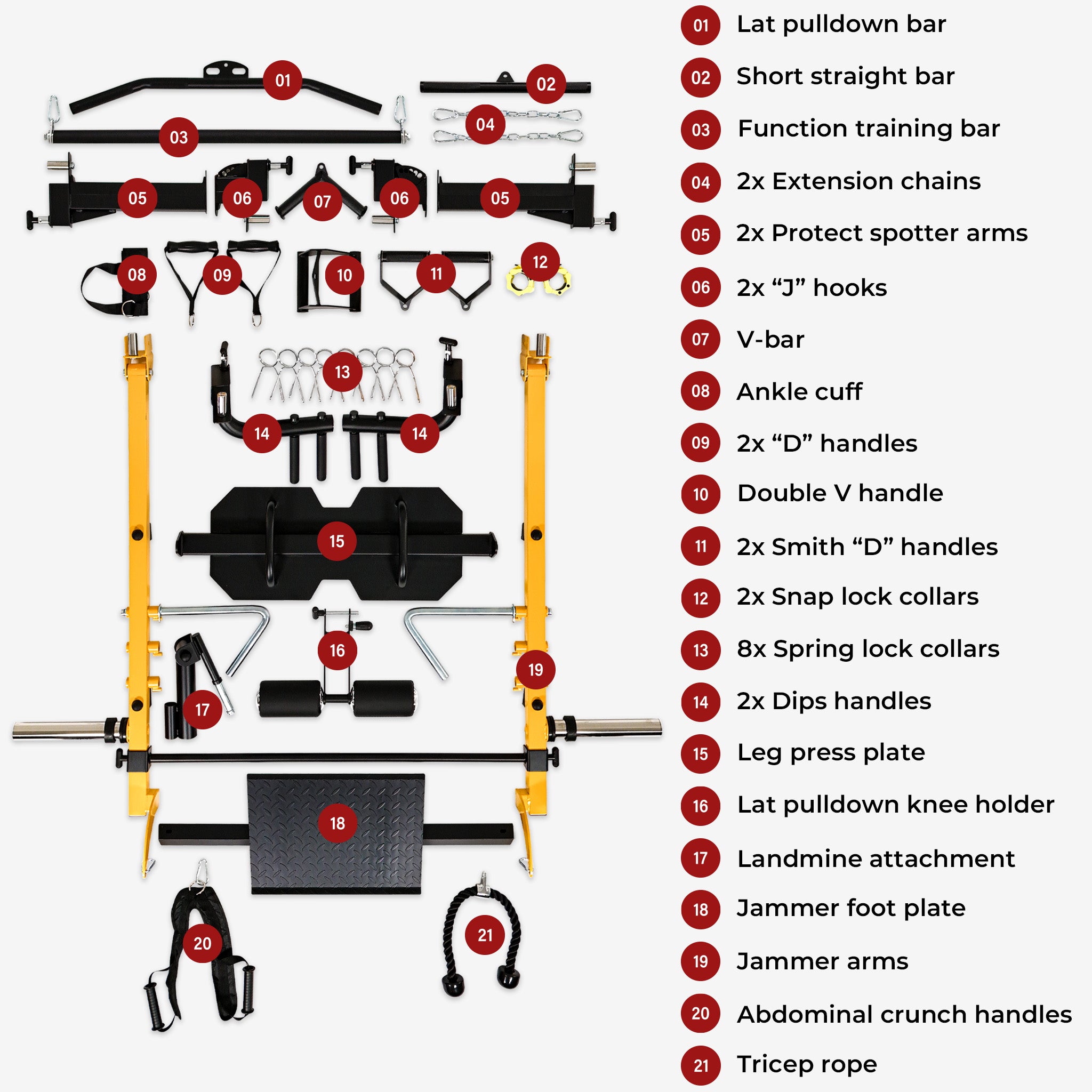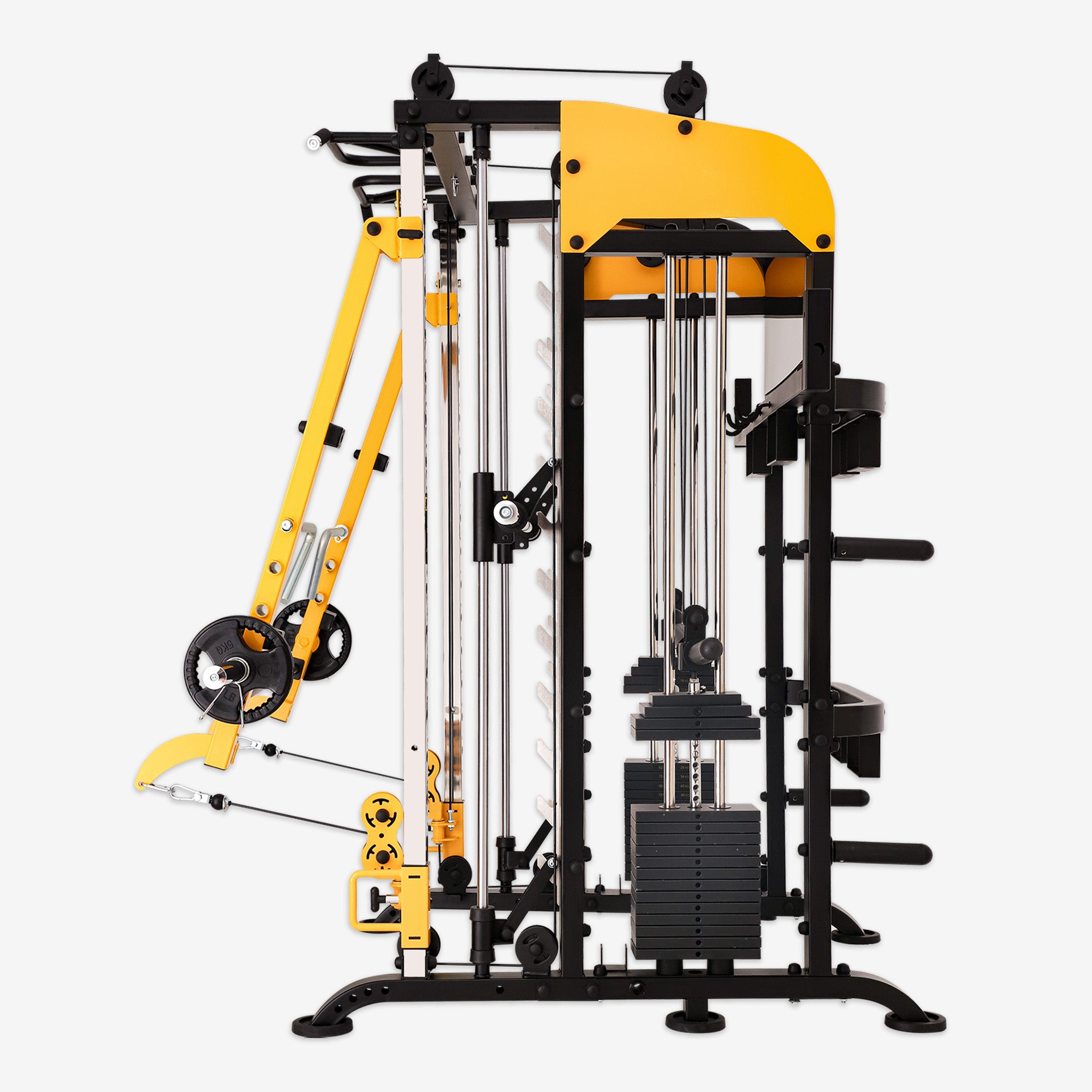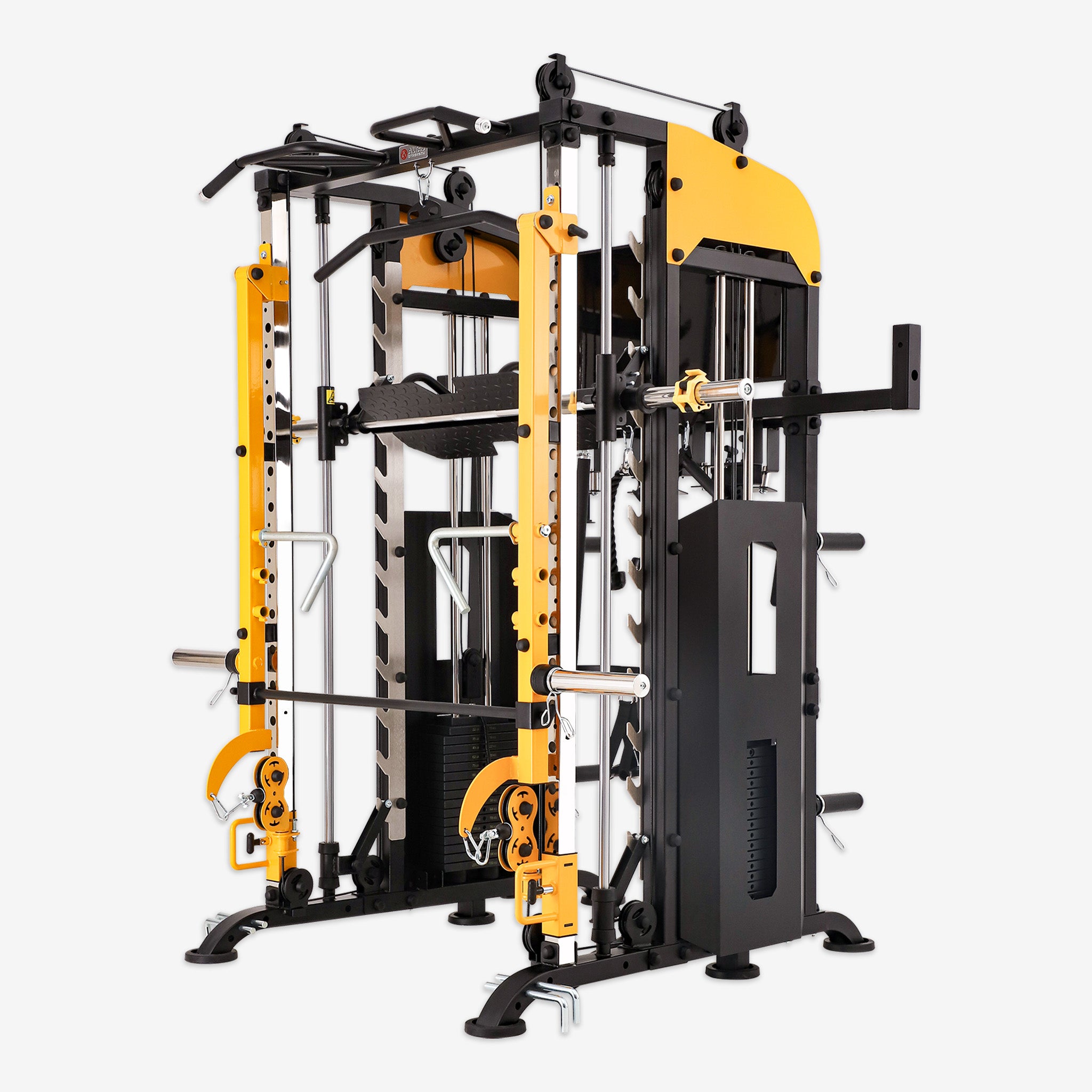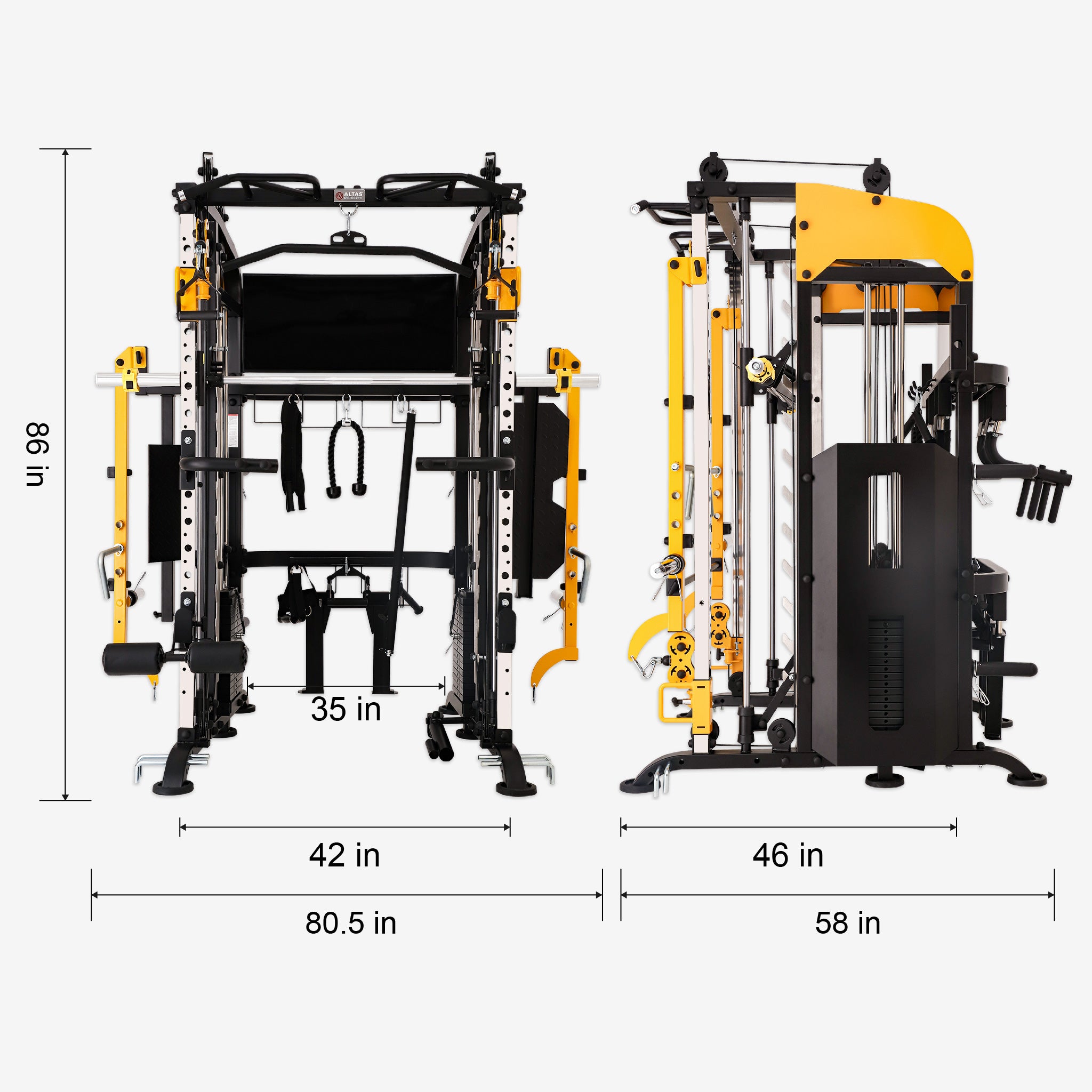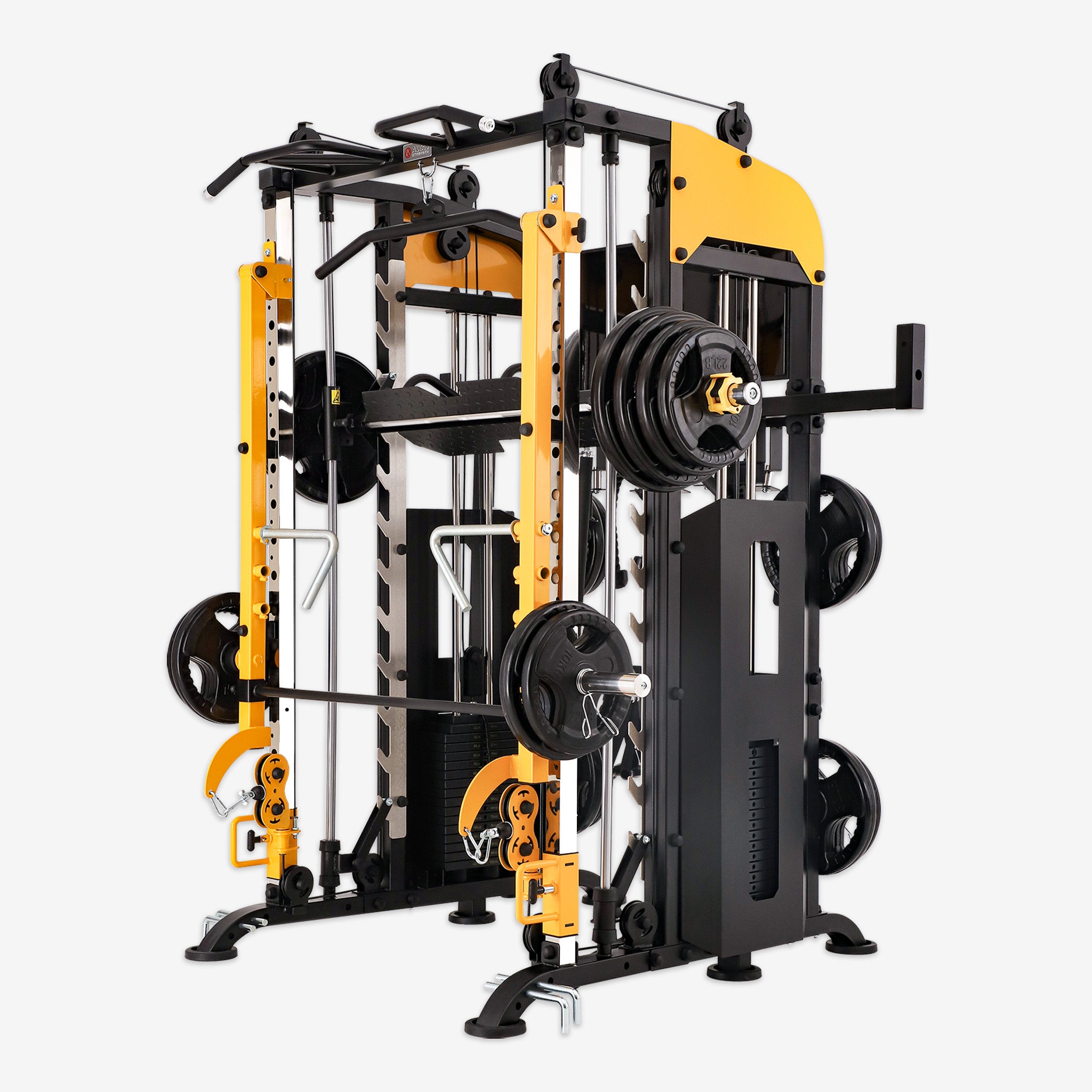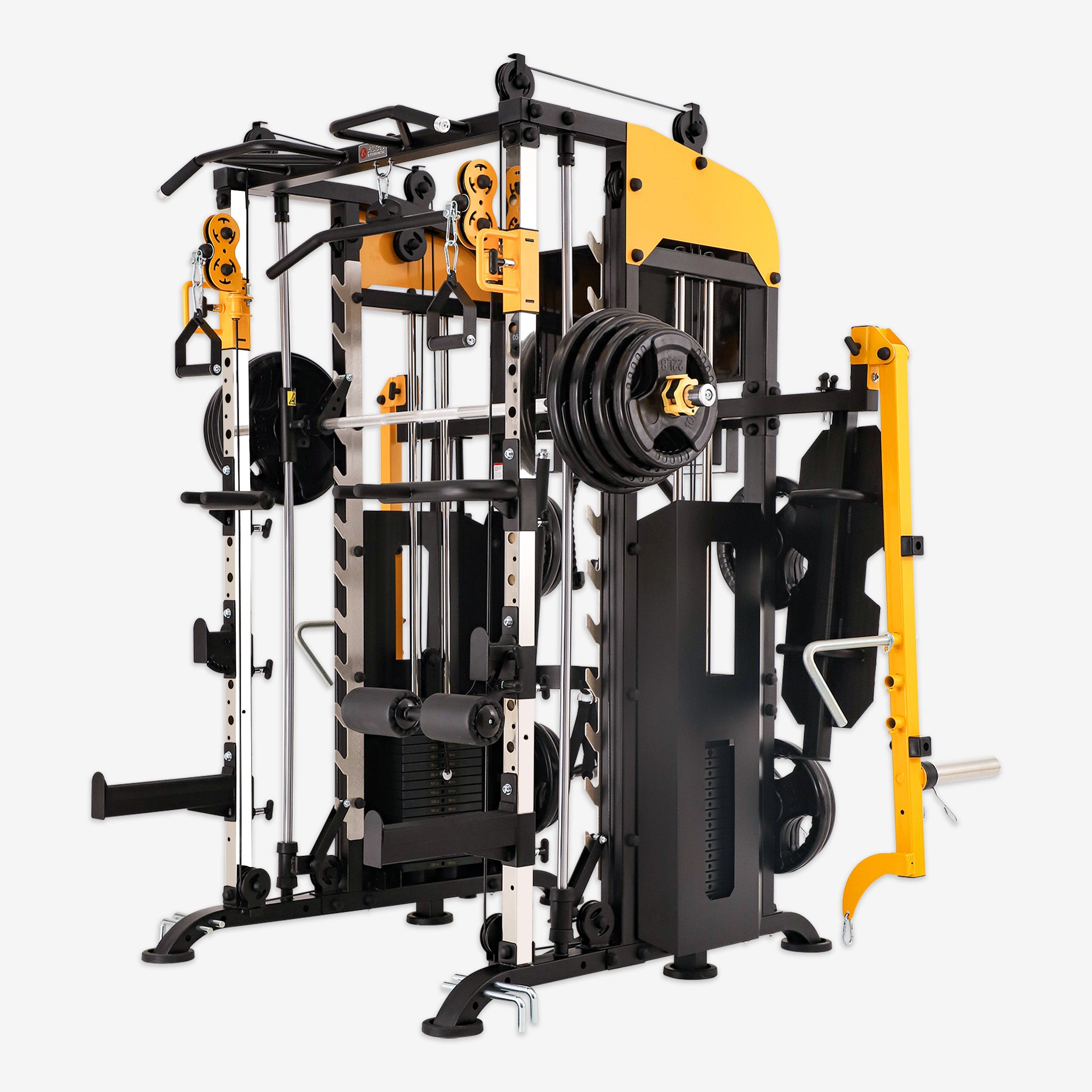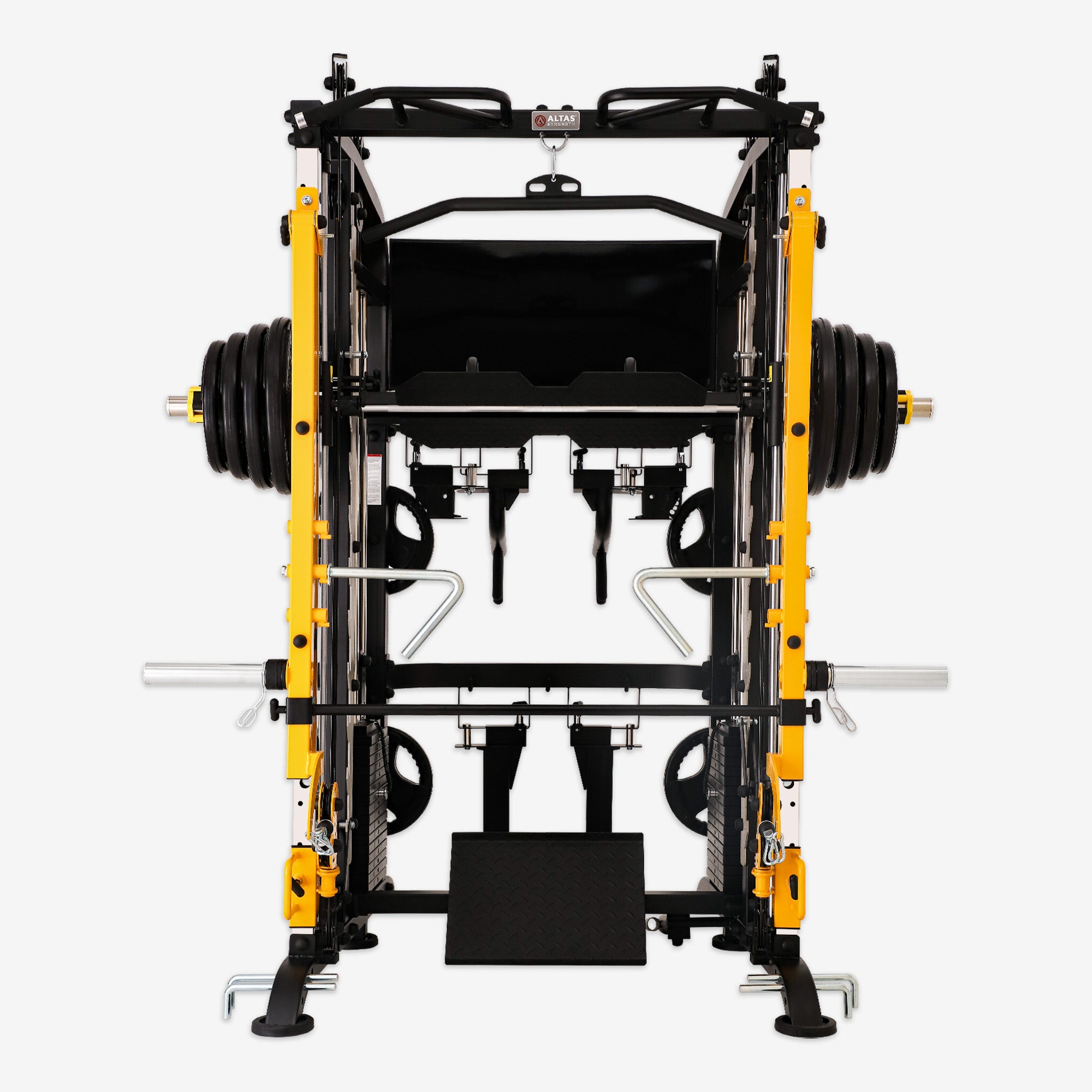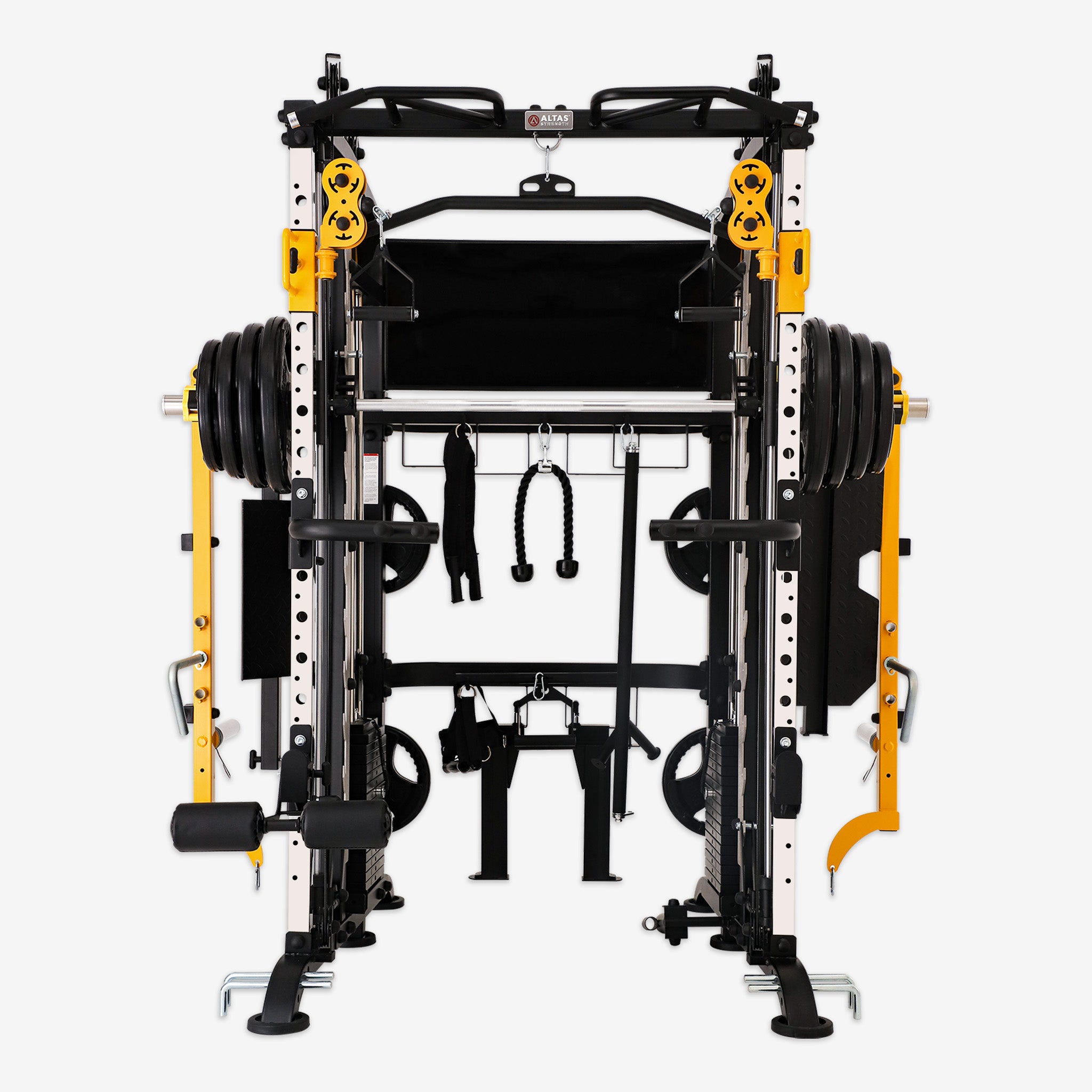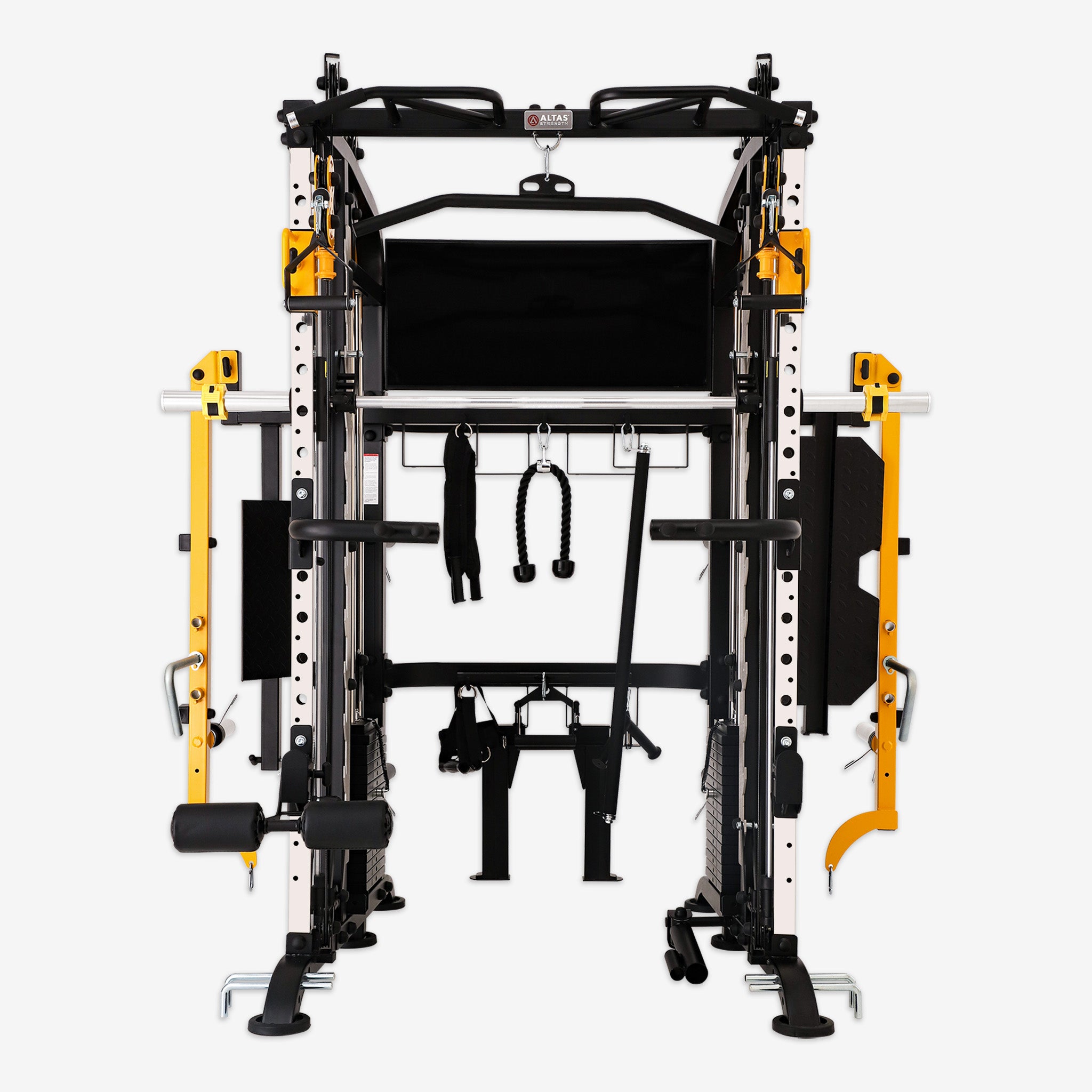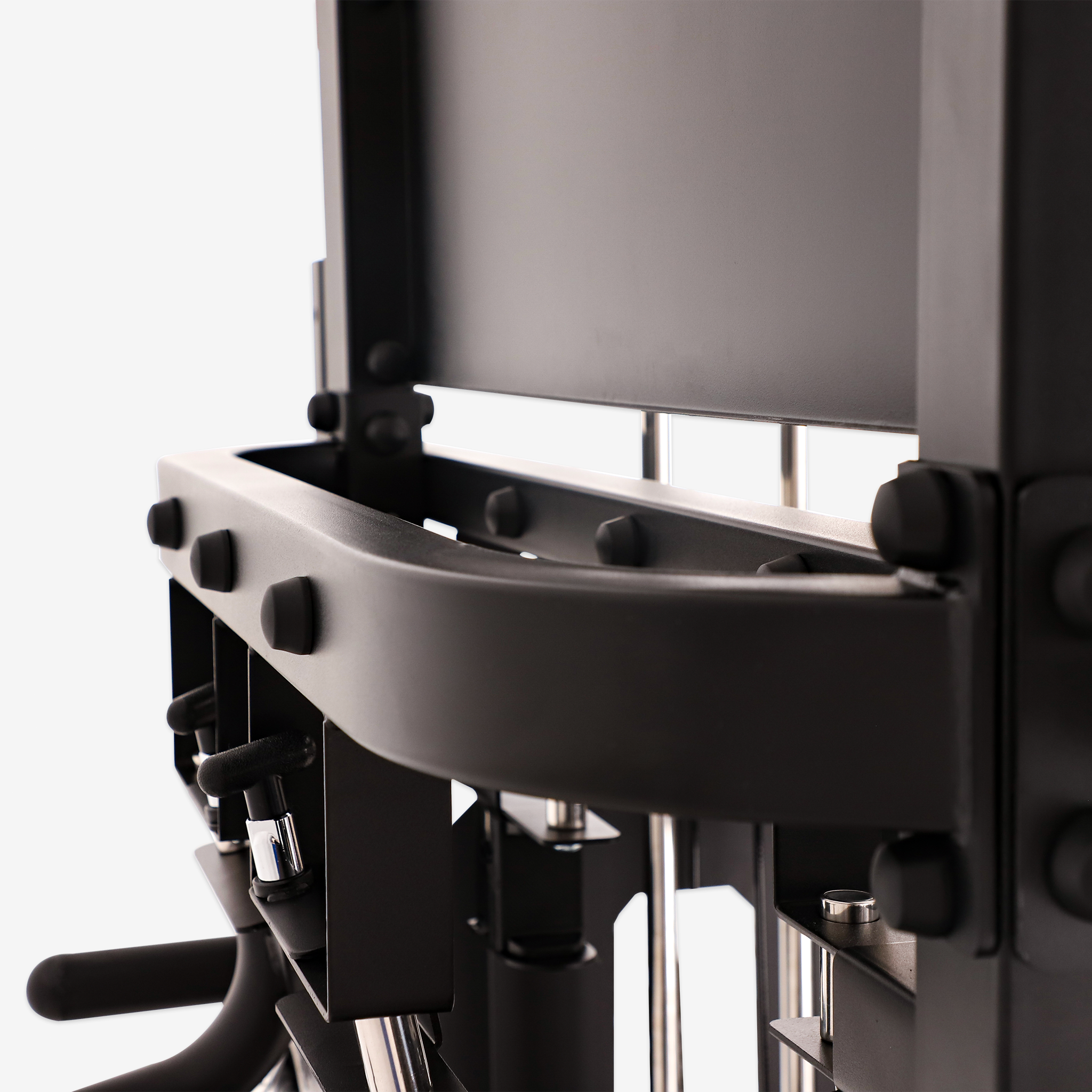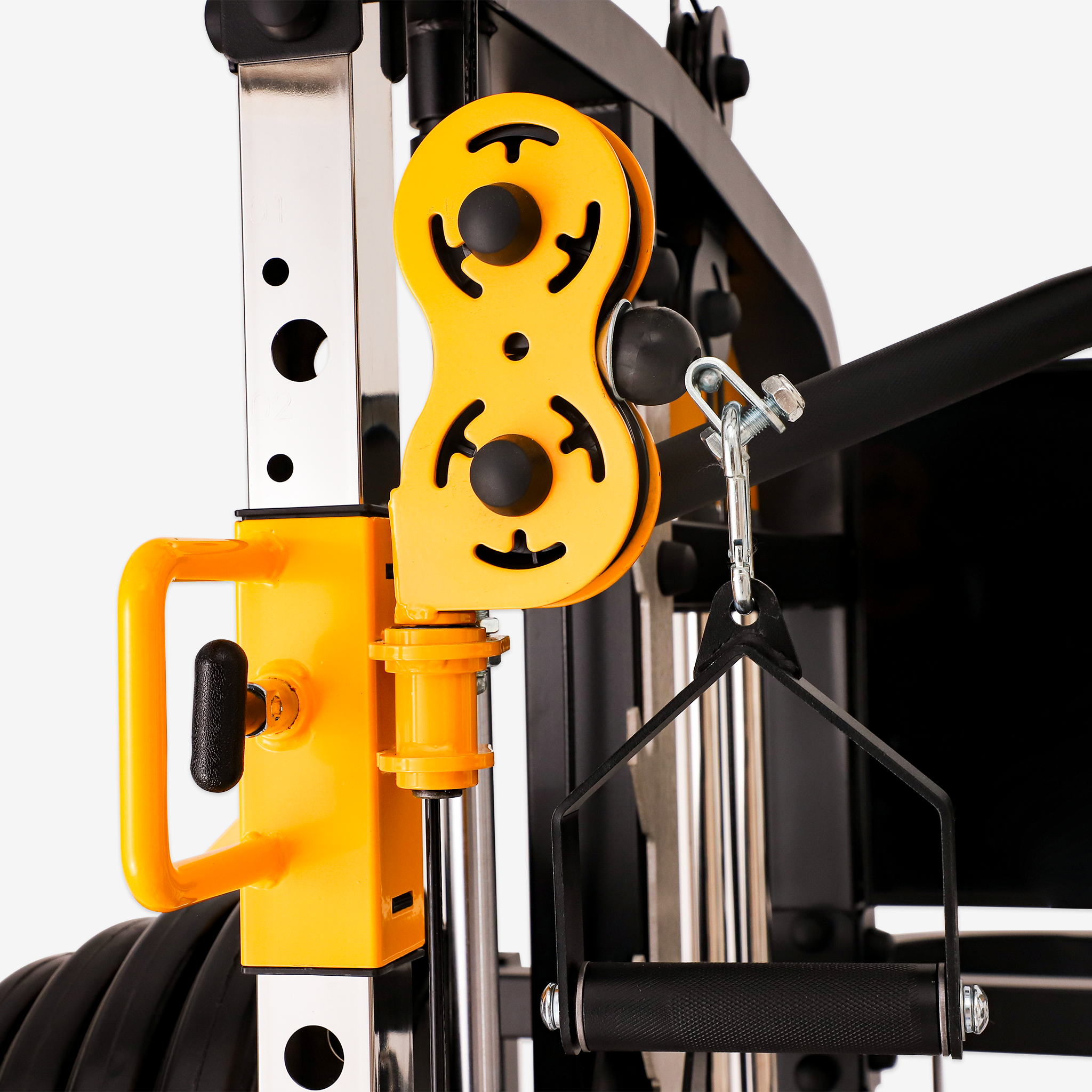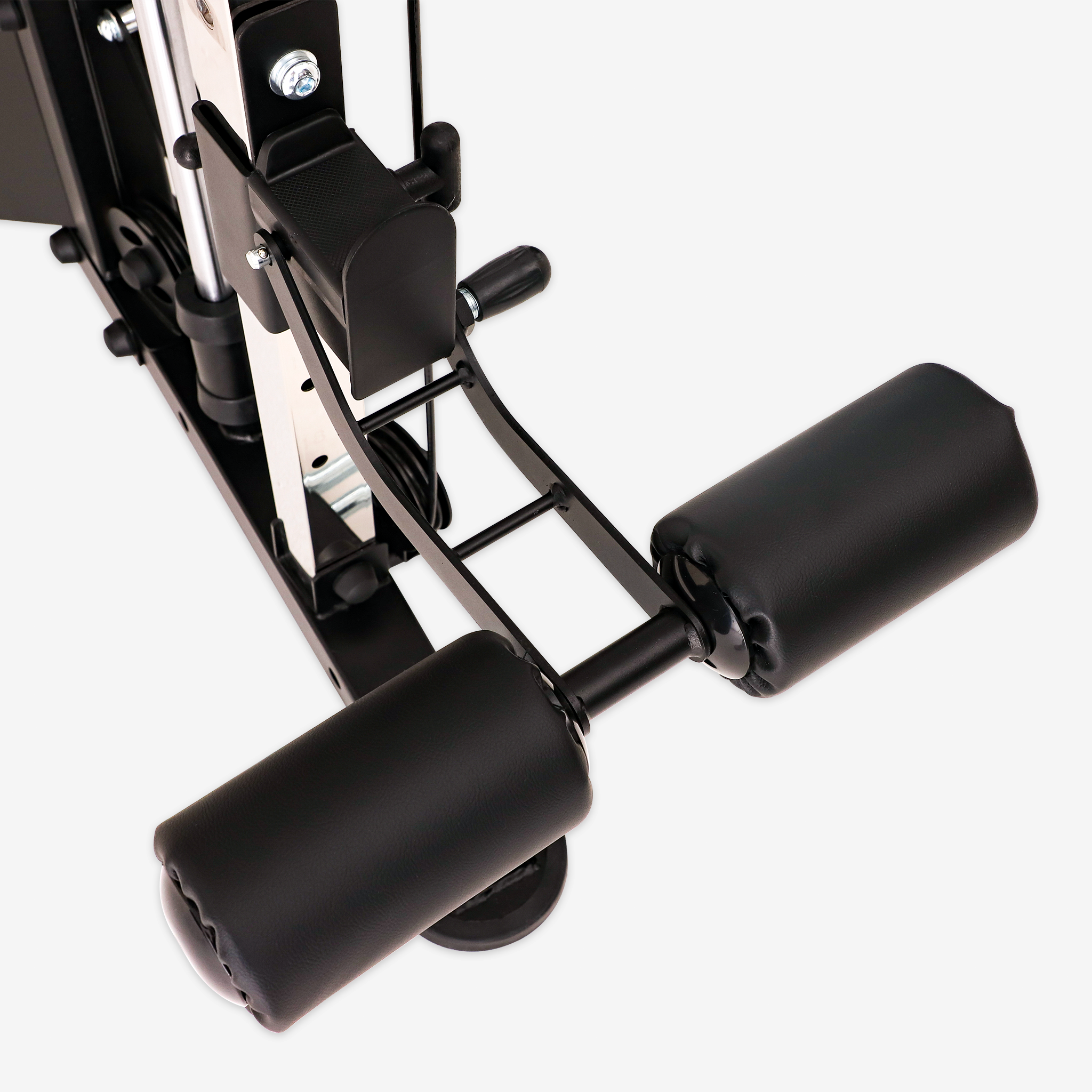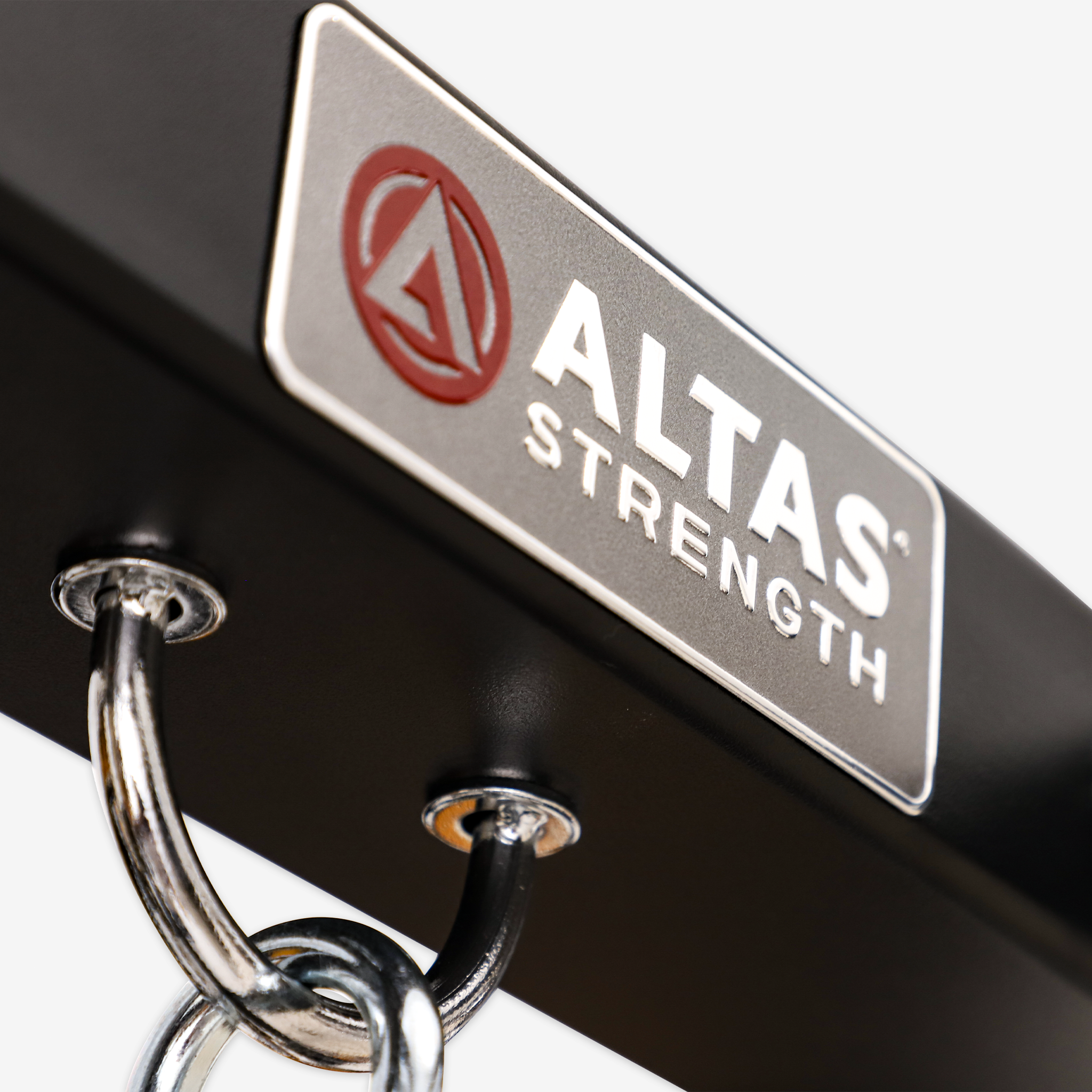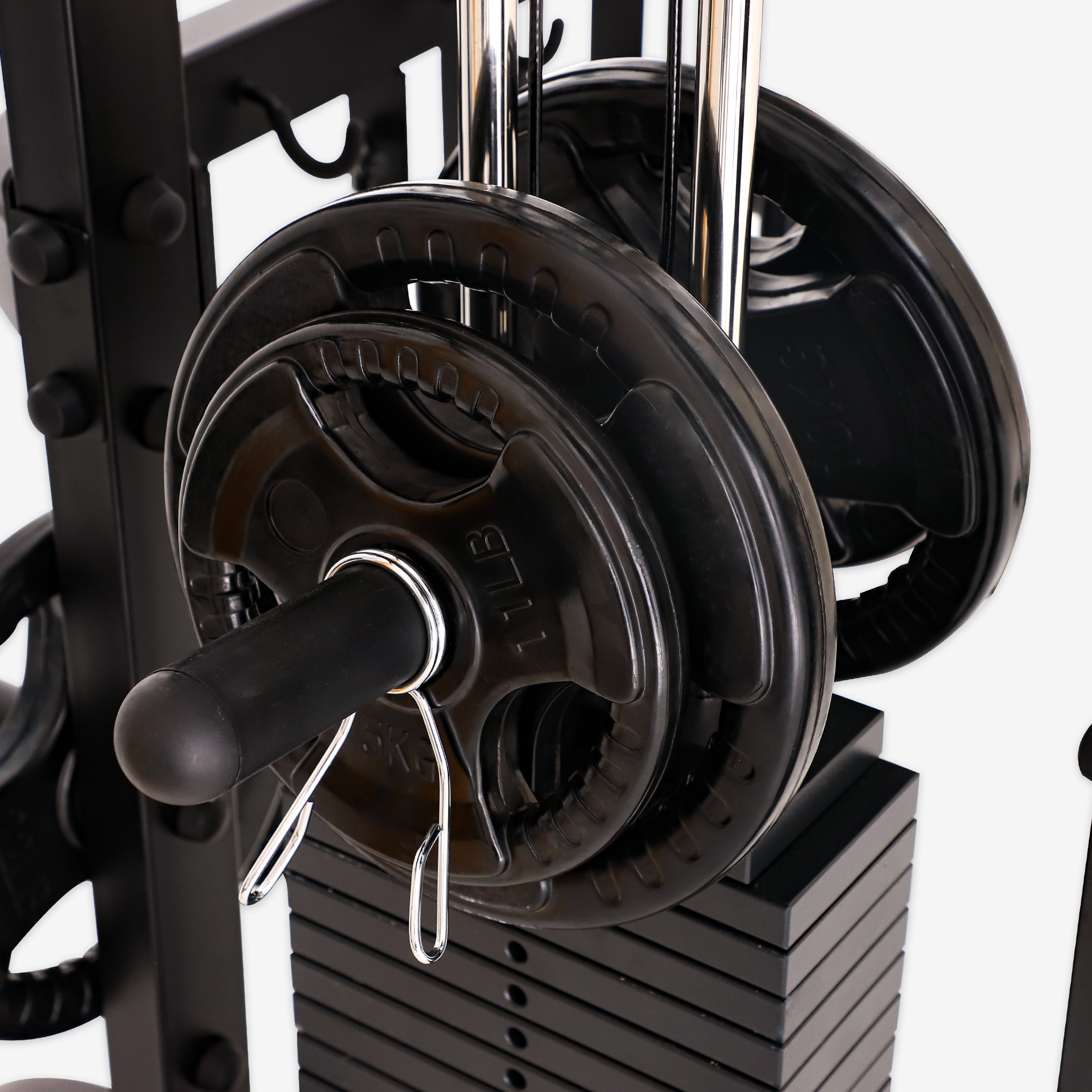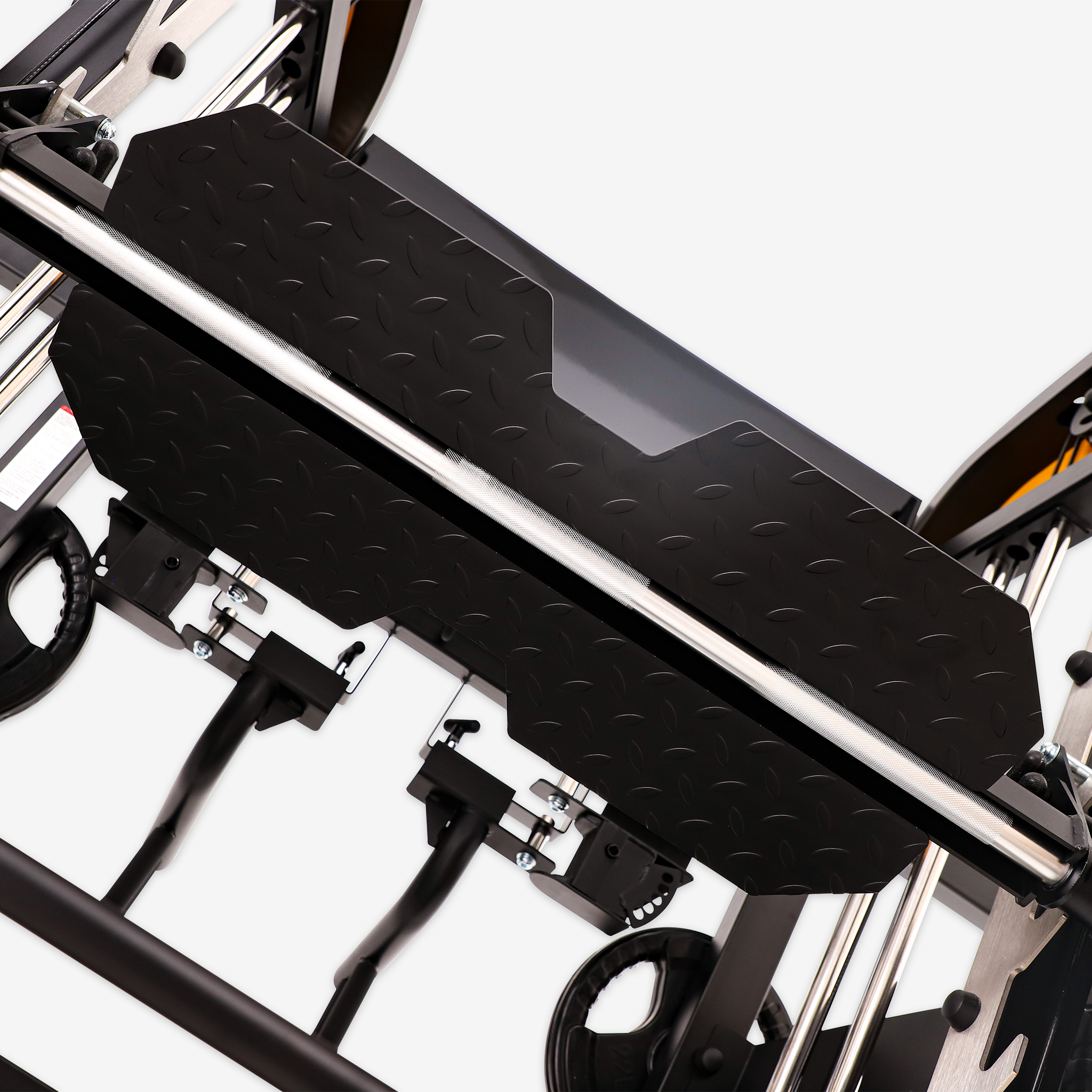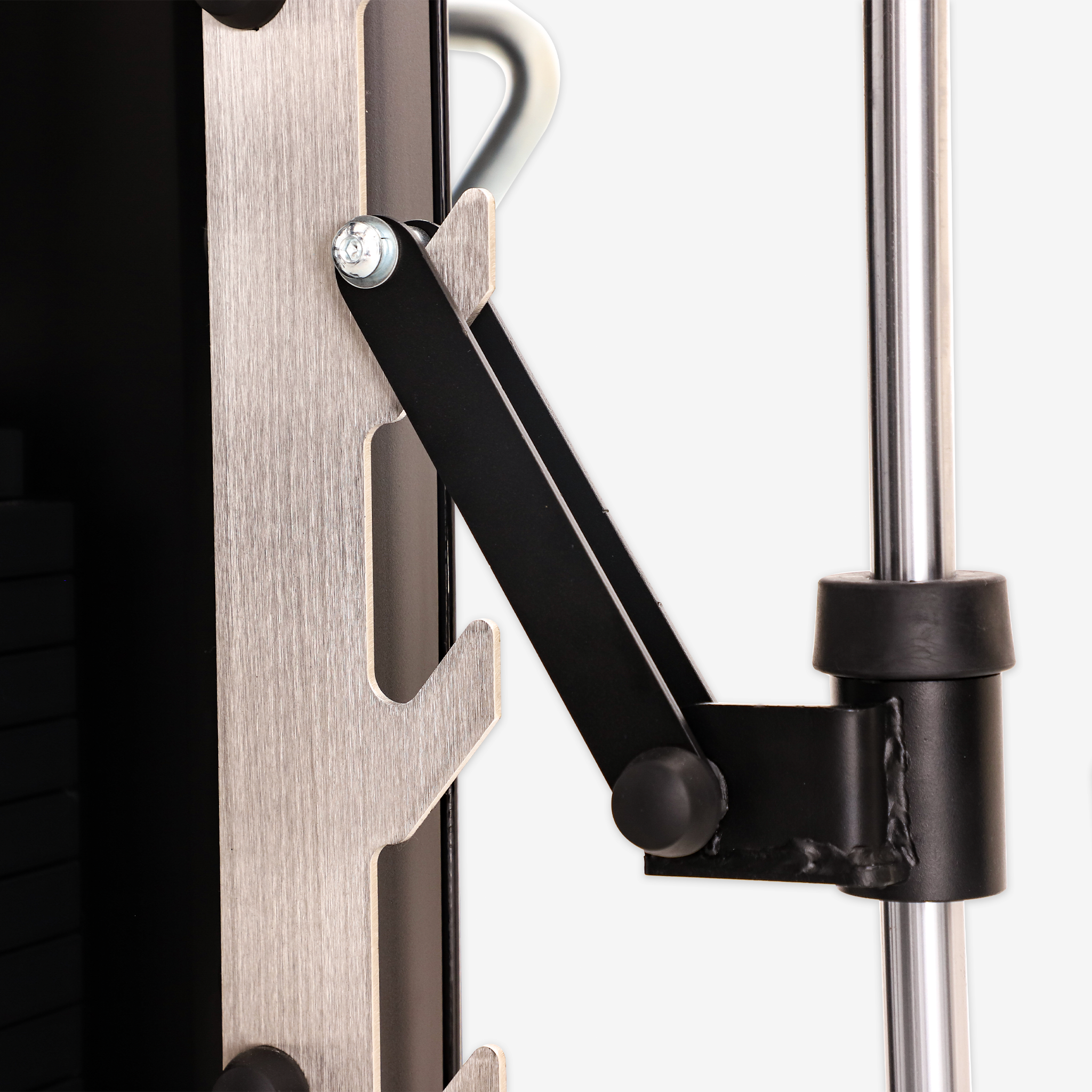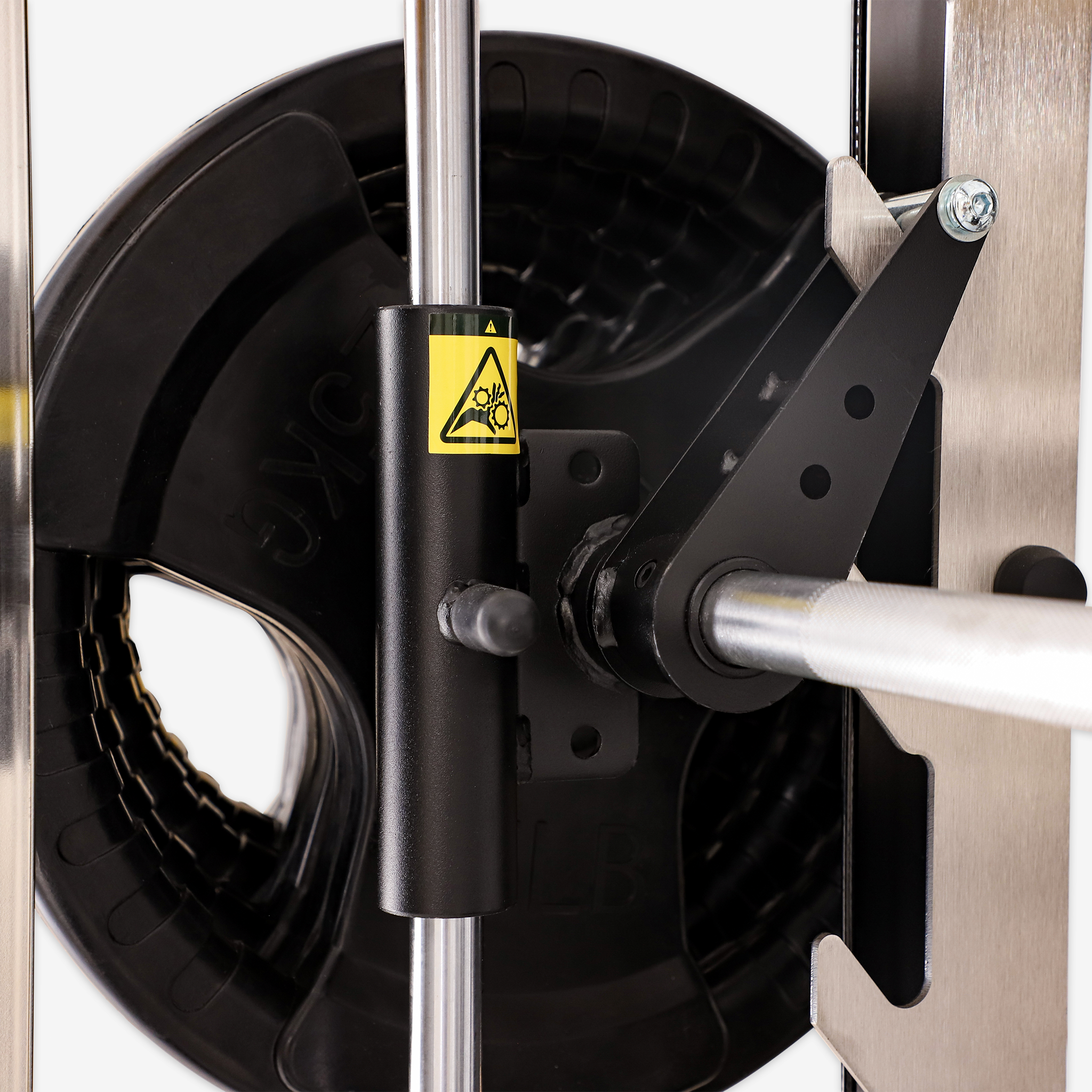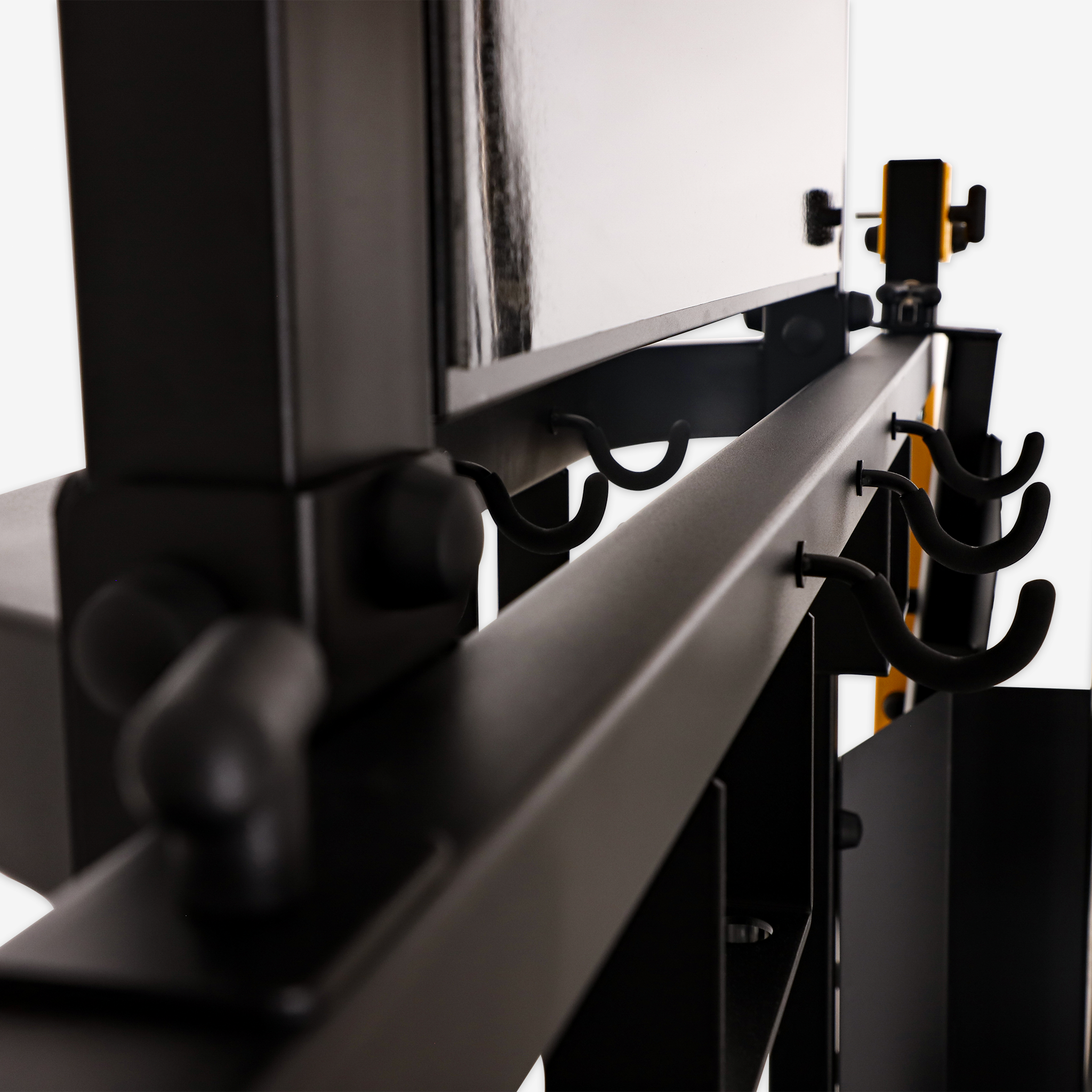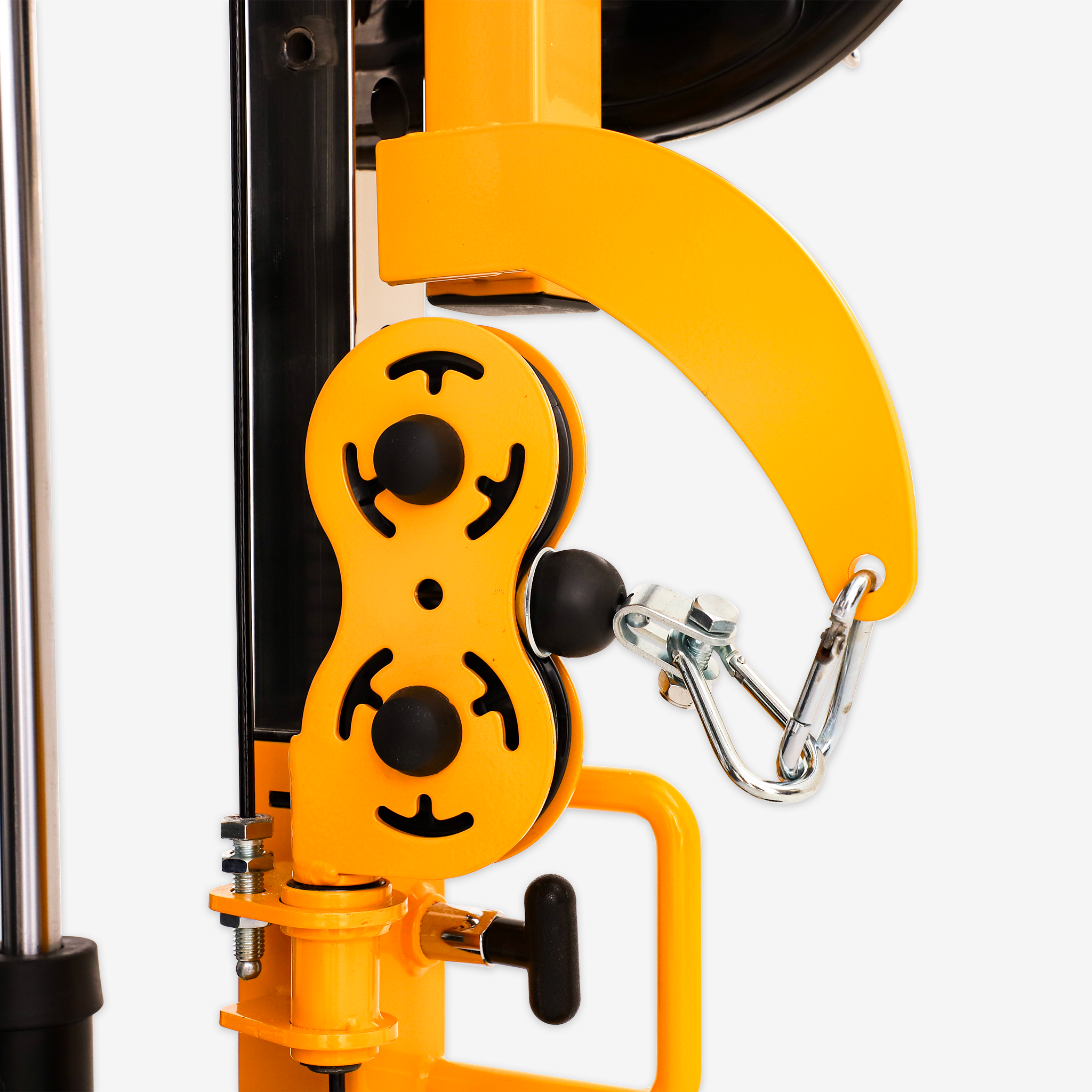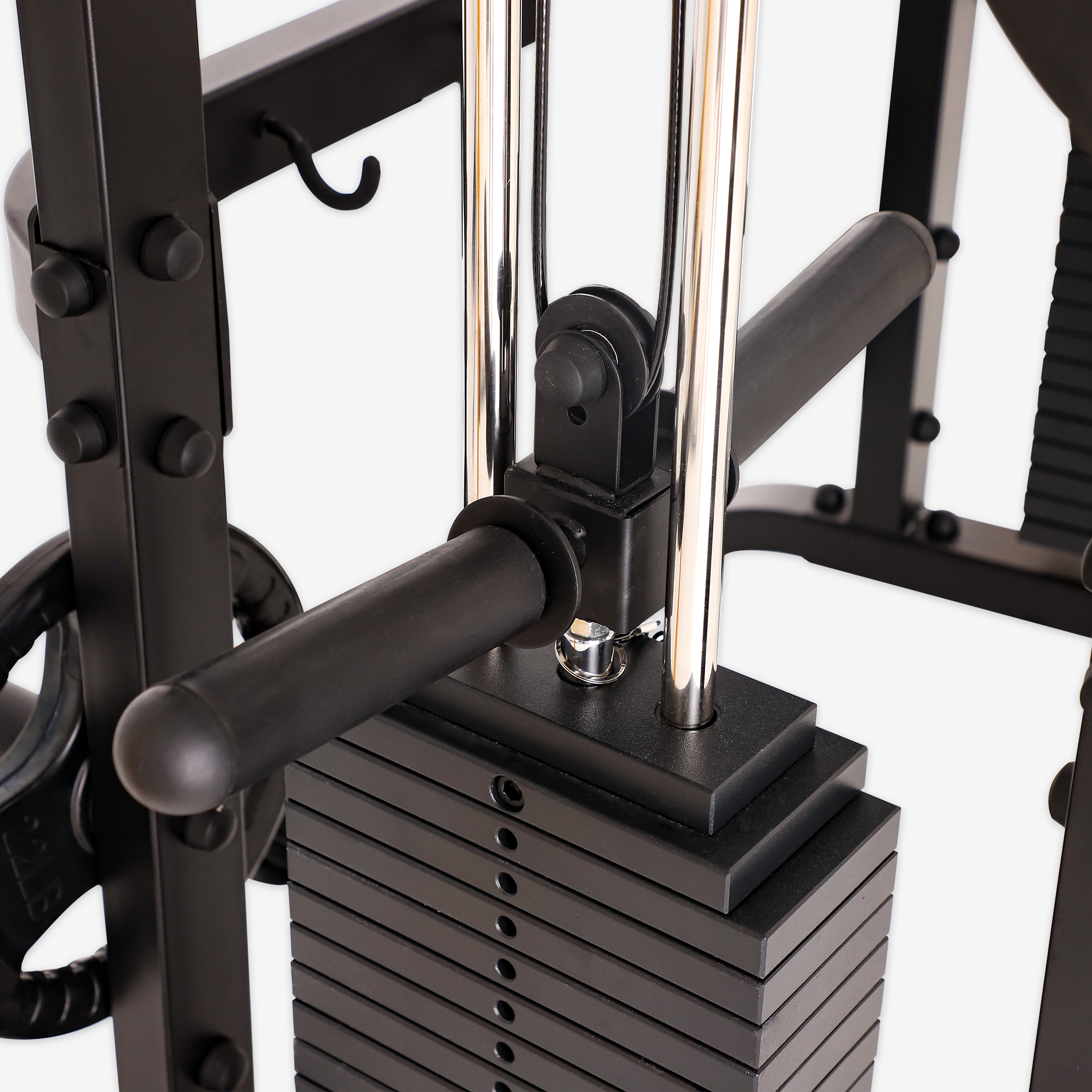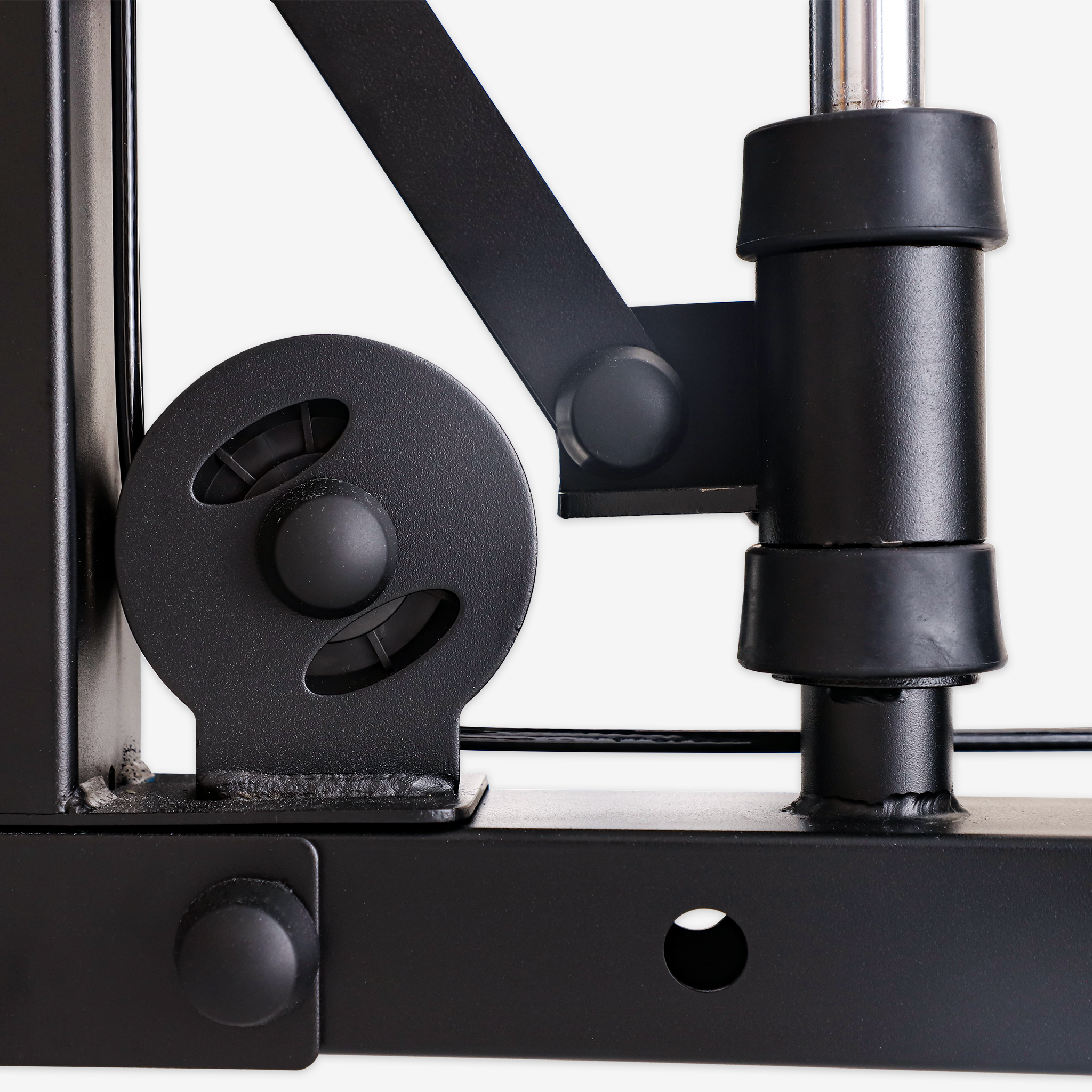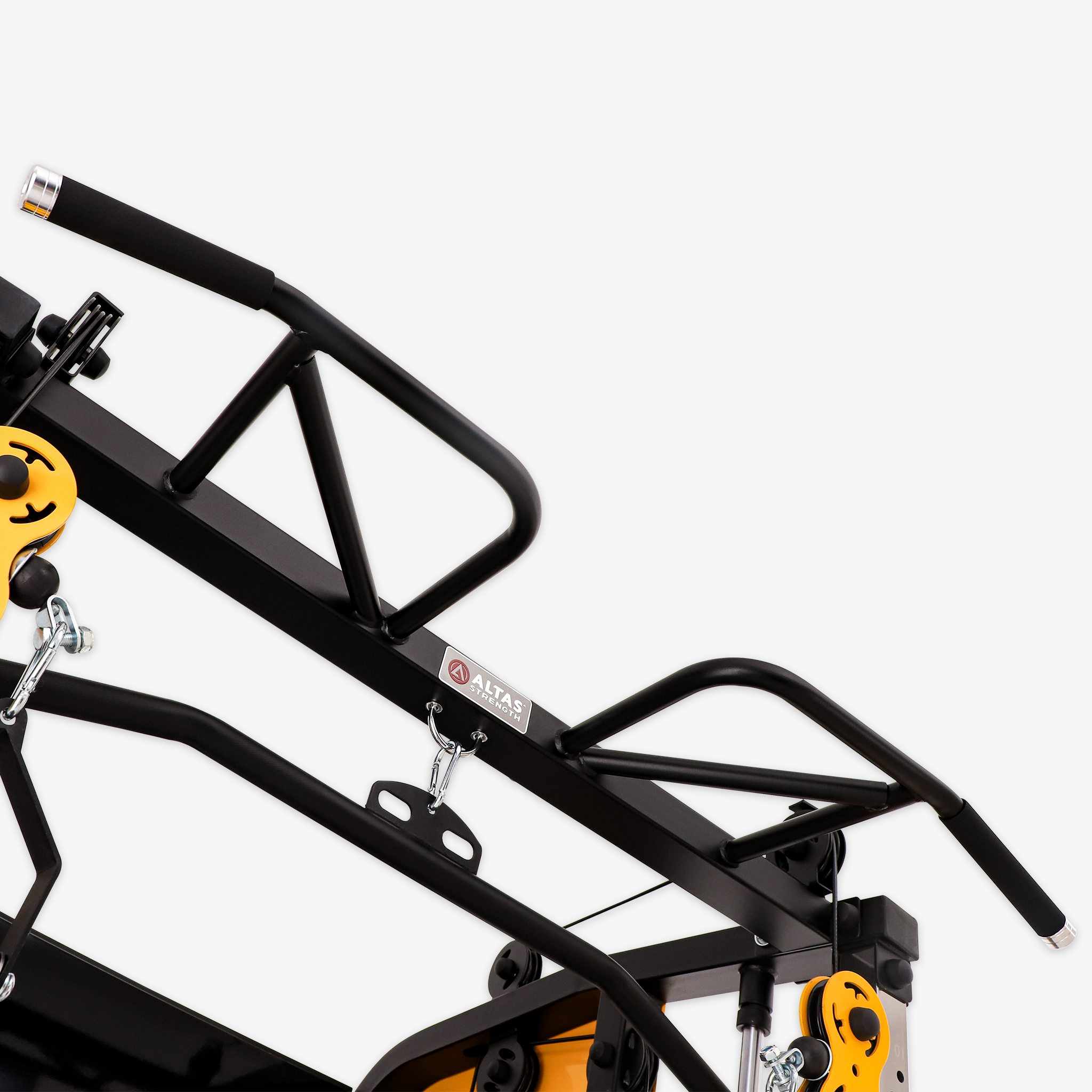The Smith machine bench press is a popular fitness apparatus commonly found in gyms. It diverges from the conventional bench press by leveraging the specialized design of the Smith machine, ensuring heightened stability and safety. However, diverse viewpoints and debates persist regarding its efficacy and applicability.
Advantages of Smith Machine Bench Press
1. Enhanced Safety: One of the primary advantages of the Smith machine is its provision of a fixed vertical track during the bench press, stabilizing the barbell's movement trajectory. This design reduces the risk of injury due to loss of control during the exercise, which is particularly beneficial for solo practitioners seeking enhanced safety measures.
2. Improved Stability: With the barbell moving along a fixed track, users need not overly concern themselves with balance, allowing for greater focus on muscle strength and endurance. This feature notably benefits beginners or those new to strength training.
3. Convenience for Solo Training: In the absence of a training partner, the Smith machine enables individuals to perform bench presses independently, eliminating concerns about weight management or safety. This convenience is particularly favored among those who frequently train alone at the gym.
Disadvantages and Controversies of Smith Machine Bench Press
1. Restriction of Fixed Path: While the fixed path reduces the risk of accidental injuries, it concurrently diminishes the challenge to muscle coordination and stability. Traditional free-weight bench presses emphasize balance and engagement of core muscle groups, contributing more comprehensively to strength and stability.
2. Range of Motion and Muscle Activation: The Smith machine's design may restrict the natural range of motion during bench press movements, potentially affecting complete muscle activation and development. This limitation is particularly noteworthy for advanced trainers who require greater freedom of movement to achieve optimal muscle training effects.
3. Adaptability and Functional Training: For individuals pursuing holistic fitness and functional training, the Smith machine bench press may prove less effective compared to free-weight alternatives. Functional training emphasizes multi-joint movements and the complexity of motion, areas where the Smith machine may not fully satisfy these diverse training needs.
Conclusion
The Smith machine bench press, as an option within the gym setting, presents distinct advantages and limitations. It offers a safer and more stable training environment, particularly conducive to beginners and solo workouts. However, for those pursuing comprehensive strength development and functional training, traditional free-weight bench presses may prove more effective. Thus, the selection of an appropriate training method hinges upon individual fitness goals and preferences, as well as guidance from fitness coaches.
Is the Smith Machine Bench Press Good for You?
Ultimately, the decision to incorporate the Smith machine bench press into your routine depends on your fitness level, goals, and preferences. Beginners and those seeking safety and convenience may find it highly beneficial, while advanced lifters and functional training enthusiasts might prefer the challenges and benefits of free weights. Consult with a fitness professional to determine the best approach for your specific needs and objectives.

